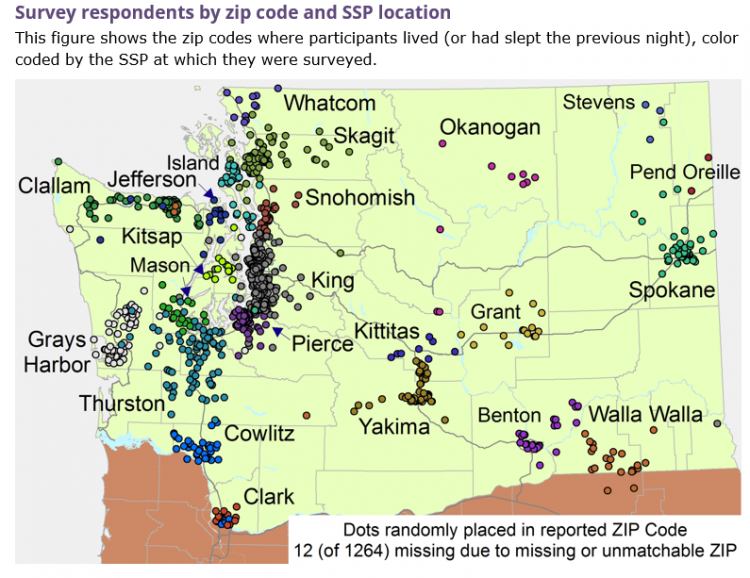WA State Syringe Exchange Health Survey, 2019 Results
04/10/2020ADAI, in partnership with Public Health-Seattle & King County, has published the latest biennial survey of people who inject illicit drugs in the state of Washington. The results of the survey provide important findings for policy makers, particularly as the world struggles to deal with the COVID-19 pandemic.
The new Syringe Exchange Health Survey, by Caleb Banta-Green, Alison Newman, and Susan Kingston of ADAI, as well as Sara Glick of the UW School of Medicine and Joe Tinsley of Public Health Seattle & King County, consists of responses from 1,269 participants from most of the more than 30 syringe services programs in 23 Washington counties.

The survey found that most people (82%) who inject heroin and about half of people who use methamphetamine are interested in reducing or stopping their use and are open to a variety of services to help them manage their substance use.
The latest results also show that possession of naloxone, a drug that reverses opioid overdose, has increased significantly: nearly 80% of opioid-using respondents both inside and outside of King County reported having a naloxone kit in 2019, compared to 2015 when only 47% in King County and 24% outside the county reported having naloxone.
Another important finding in the survey is that 68% of participants who have been diagnosed with hepatitis C remain untreated but were interested in treatment for that disease, which is good news since hepatitis C can be cured with a three-month course of medication.
During the COVID-19 crisis,
syringe exchanges have been continuing to operate across Washington State,
although programs have had to substantially modify how they deliver services,
including distributing pre-packaged supplies, moving outdoors, and providing
mobile and delivery services.
“People who inject drugs, and also smoke them, are at high risk for contracting and having serious consequences of COVID-19 and already use emergency health care resources at high rates,” said report co-author Caleb Banta-Green, principal research scientist at ADAI.
Consequently, access to syringe services, which help reduce the risk of contracting or transmitting infectious diseases, during this crisis can help alleviate pressure for emergency medical care while also helping this at-risk population get treatment to reduce or stop their drug use.
For more about the report, see the complete press release from UW News.





